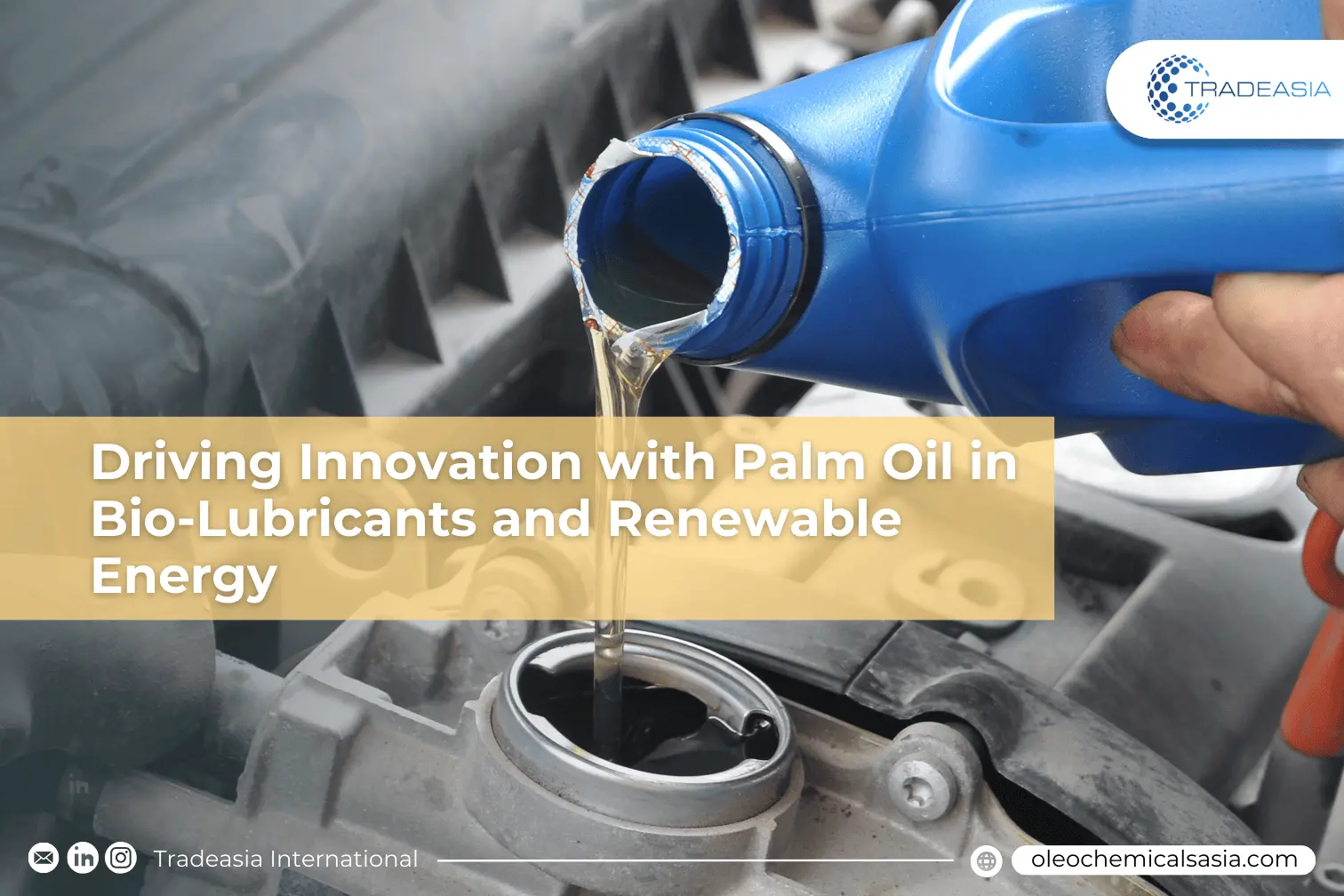Palm Oil’s Expanding Role in Sustainable Industrial Applications
The global bio-based lubricant market is projected to grow at an annual rate of 5.21% from 2022 to 2027, reflecting a rising demand for sustainable solutions across industries. In this context, palm oil derivatives are emerging as a vital feedstock due to their renewable and biodegradable nature, offering a competitive alternative to fossil-based lubricants. Through chemical modifications, derivatives such as palm olein and palm methyl ester have achieved improved thermal-oxidative stability and enhanced lubricity, ensuring compliance with industry viscosity standards like SAE-30 and SAE-40. This makes palm-based bio-lubricants highly suitable for industrial machinery and demanding diesel engine applications, where performance and durability are critical.
Palm oil’s role extends further into biofuel, with biodiesel production being a key growth driver. The use of palm oil in biodiesel rose significantly from 6.2 million tons in 2015 to 13.9 million tons in 2020, representing an increase in market share from 23% to 36% of the global biodiesel feedstock supply. This surge is attributed to palm oil’s competitive cost, high availability, and reliable supply chain, positioning it as one of the most efficient raw materials for large-scale biofuel production. Coupled with strong policy support in regions such as the European Union, United States, China, and India, the global biodiesel market is set to expand further as governments push for reduced emissions and greater reliance on renewable energy sources.
Strategic Importance of Indonesia and Malaysia in the Green Transition
As the world’s top palm oil producers and exporters, Indonesia and Malaysia hold a decisive role in the success of palm oil derivatives in both bio-lubricants and biodiesel markets. Both countries have rolled out government incentives, subsidies, and biodiesel blending mandates to strengthen adoption and encourage investment in bio-based industries. These supportive frameworks not only secure market stability but also reinforce corporate confidence in integrating palm oil derivatives into their sustainability roadmaps. For companies operating in transportation, energy, and manufacturing, palm-based solutions present a pathway to reduce carbon intensity while meeting stricter environmental standards.
Beyond their economic value, palm oil-based products contribute directly to global sustainability goals. Their adoption aids in reducing greenhouse gas emissions, cutting fossil fuel dependency, and advancing the clean energy transition. Furthermore, these developments align with broader UN Sustainable Development Goals (SDGs), particularly affordable and clean energy (SDG-7), economic growth (SDG-8), poverty alleviation (SDG-1), and climate action (SDG-13). For palm oil producers, this momentum translates into significant trade opportunities, while for global corporations, it represents a chance to integrate renewable resources into long-term growth strategies.
In conclusion, palm oil’s journey beyond food applications highlights its growing strategic relevance in bio-lubricants and renewable energy. With robust growth projections, favorable regulations, and rising corporate adoption, palm oil derivatives are positioned as key enablers of the green energy transition. The trajectory underscores not only the innovation within palm oil R&D but also the vital role of Southeast Asia in powering sustainable industrial solutions worldwide.

Leave a Comment